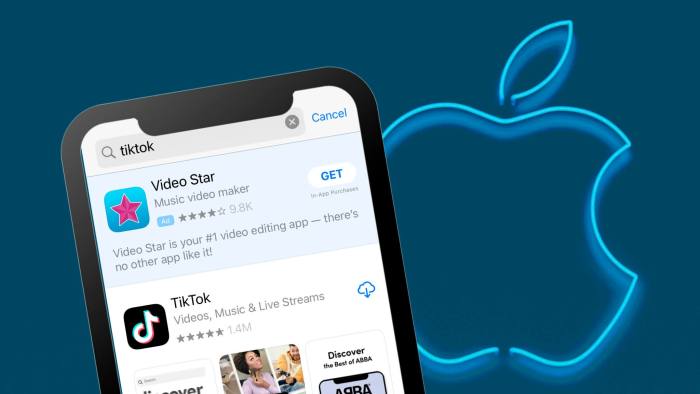Please use the sharing tools found via the share button at the top or side of articles. Copying articles to share with others is a breach of FT.com T&Cs and Copyright Policy. Email [email protected] to buy additional rights. Subscribers may share up to 10 or 20 articles per month using the gift article service. More information can be found here.
https://www.ft.com/content/e604236b-41fa-4ff5-ad6d-a07c5e1057d9
Last call for entries: responsible business education awards The FT invites business school teachers, researchers and alumni around the world to enter its new awards for responsible business education. Entries are open until October 20 for examples of projects by recent graduates, teaching cases, and research studies that have had a positive societal and environmental impact. Winds of change: projects by recent graduates will feature in the awards © Getty Images Academics are also invited by November 15 to submit entries for awards including for Societally Relevant Management Scholarship from the International Federation of Scholarly Associations of Management. Click here to find more: https://www.ifsam.org/ifsam-awards. Andrew Hill’s management challenge I am deeply sceptical about appointments of co-chief executives, which seem to me to add complexity to what is already a complicated job managing an organisation. As I write in my column this week, I’m puzzled that the two-heads-better-than-one approach has such a long pedigree in private equity, where KKR founders George Roberts and Henry Kravis have just handed the reins to co-CEOs. What would be your reason for hiring two CEOs? I am curious, though, to hear the counterview. Job shares often work, and there are exceptions where co-CEOs have used complementary skills to good effect. For my management challenge, send me your justification for appointing two chiefs. If it’s easier, frame it as a note to the chair, explaining why you would manage better in tandem with a colleague. I’ll be looking at your entries at [email protected]. Last week, I asked how you would open strategy-setting to the masses. Oscar Grossman suggested using the time-honoured method of scenario planning, “inviting participation from stakeholders, even through digital media, to generate a strategic conversation and discussion on the key factors and driving forces . . . that could modify drastically the long term view of the company”. In further reading, I was duly provoked by the provocative headline “Are Narcissistic CEOs All That Bad?” on a new paper by David Larcker, Charles O’Reilly, Brian Tayan and Anastasia Zakolyukina from Stanford. Stock price performance of companies with narcissistic leaders may be lower, they find, but environmental, social and governance scores are higher. Do they care more about such matters or are narcissists just “better at corporate ‘window dressing’ than their less narcissistic peers”? Data line Every year, we ask EMBA alumni in our ranking to assess the quality of topics taught on their programmes. According to graduates who completed their course in 2018, schools delivered well on corporate strategy, finance and general management. Both ecommerce and fintech are growing sectors but they received lower ratings from alumni, write Sam Stephens and Leo Cremonezi. Take a look at our full analysis. Work and careers round-up Psychotherapist Esther Perel talks about how to navigate the “next normal” at work. It is about “balancing productivity and compassion, valuing outcome over hours and embracing adaptive challenges as opportunities for innovation.” Understanding more about human relationships will help business leaders minimise the pandemic’s after-effects on staff © Dominika Lipniewska PIlita Clark looks at how young workers have a better grip at needing to switch off: “I continue to be struck by the number of managers I meet whose younger staff have informed them they would not be working on demand, no matter how much they were needed.” Learn what it takes to reinvent a traditional industry. Milk & More’s Patrick Müller set about transforming a dairy delivery service to one that is fit for the digital age. Links to slavery have prompted much reflection. Organisations such as London’s Bayes Business School face dissent as they rebranded to disassociate themselves from a past tainted by racism and slavery. Read more features on work and careers at ft.com/work-careers. How good is your knowledge of the news? Answer our 10 question quiz. Top reads from business schools in the last week Death of Conservative MP David Amess was terrorism, say police The death of Amess highlighted the increasingly hostile environment that MPs have faced in recent years, including abuse on social media. © Getty Images Gas shortages: what is driving Europe’s energy crisis? Supply shortfalls and an over-reliance on volatile imports are contributing to record prices. Groningen, in the Netherlands, is Europe’s largest gasfield, but it has seen its huge supplies slowly depleted © Jasper Juinen/Bloomberg SpaceX: how Elon Musk’s new rocket could transform the space race The entrepreneur hopes the Starship will help take humans to Mars. Rivals fear it will dominate US deep space exploration. Elon Musk: CO2 saint or sinner? | FT Film Back issues To view previous newsletters, go to: ft.com/bschool. If this newsletter was forwarded to you, then please sign up for the FT Business School Briefing. Thank you for reading. Please send your recommendations and feedback to [email protected]. Recommended newsletters for you Unhedged — Robert Armstrong dissects the most important market trends and discusses how Wall Street’s best minds respond to them. Sign up here. FT Schools Digest — Perfect for teachers and students













